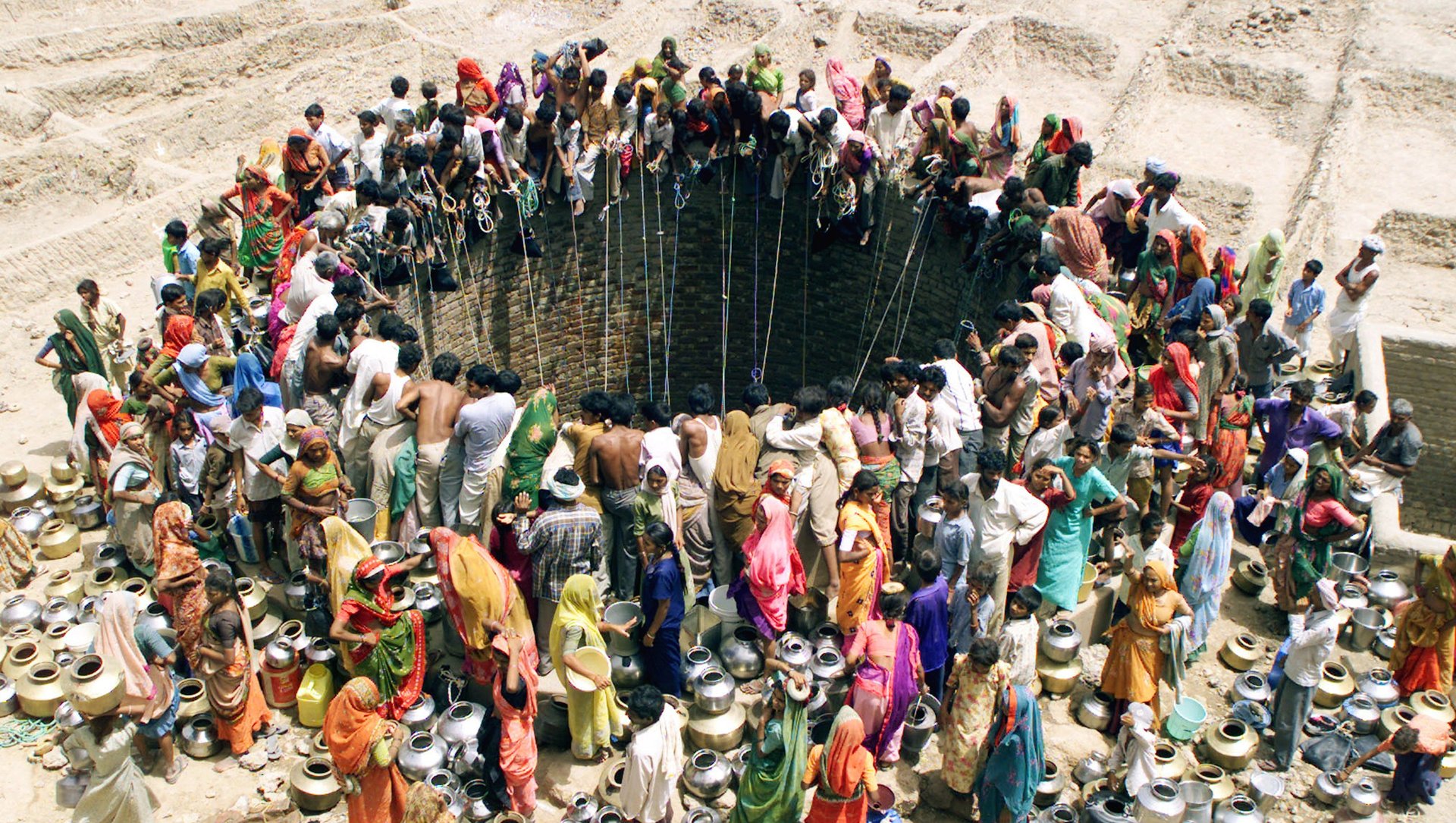World War III will be fought over water
In 2015, NASA’s satellite data revealed that 21 of the world’s 37 large aquifers are severely water-stressed. With growing populations, and increased demands from agriculture and industry, researchers indicated that this crisis is only likely to worsen.


In 2015, NASA’s satellite data revealed that 21 of the world’s 37 large aquifers are severely water-stressed. With growing populations, and increased demands from agriculture and industry, researchers indicated that this crisis is only likely to worsen.
Rajendra Singh, known as the “water man of India,” believes that critically depleted aquifers around the world can be revived with community effort. For the past 32 years, through his NGO Tarun Bharat Sangh (Young India Organization), Singh has led community-based water harvesting and water management initiatives in the Alwar district of Rajasthan, an arid, semi-desert state in the northwest of India. For his work, Singh was awarded the Ramon Magsaysay Award for community leadership in 2001, and the Stockholm Water Prize in 2015.
The following interview with Singh has been edited for clarity:
You’ve often criticized states for taking a top-down, infrastructure-led approach to water management. Are governments generally supportive of alternative community-led initiatives? Is political and corporate support necessary?
RS: Governments usually don’t support community initiatives—they support contractors, not communities. The government always likes big projects in the name of combating desertification or rejuvenating the landscape: big dams, big canals, centralized irrigation water systems, pipeline drinking water systems. They create new canals even when the old canals are dry. There is no community participation in these projects. Every type of work is given to a contractor now. It is a contractor-driven democracy, not a people-driven democracy.
Last year, you launched the World Water Peace Walks. What is the role of water in fostering world peace?
RS: The third world war is at our gate, and it will be about water, if we don’t do something about this crisis. These walks are to raise awareness—this year we covered 17 countries, and in nine of them there were displaced people. So many people in the Middle East and African countries are moving to places like Europe, in part because of water scarcity—after forced migration comes, tension, conflict, and terrorism. Where terrorism is active, there is usually a scarcity of water. Look at Syria—a long time ago, it had very good agriculture, but then Turkey built a dam that changed things. It’s a similar story with Libya. If we want a safe future, we need to start conserving water.
What role can regulation play in conservation? Do you think privatizing water is a good way to promote its efficient use?
RS: If we really think about legal changes, we have to first think about river rights, or the rights of nature, and only then about water rights for humans. This type of thinking doesn’t exist today but we need this kind of legal framework that assures that the land of the river is only for the river, that the flow of the river is kept clean, and that the river has greenery on both banks to prevent erosion and silting. Only with all these factors can we ensure that rivers are healthy and only then that we are healthy.
Powerful corporations have created a water market—they pollute our rivers and make us pay money for drinking water. They say that only with a high price for water can we get disciplined use, but this is not right. In my region, for the last 19 years our river parliament has made the rules and regulations that everyone follows, and everyone has enough water. Sustainable community-led water management has existed for thousands of years without anyone putting a price on water. So why do we need it today? Because the corporate sector is making the rules. Privatization is not the answer, charging more is not the answer.